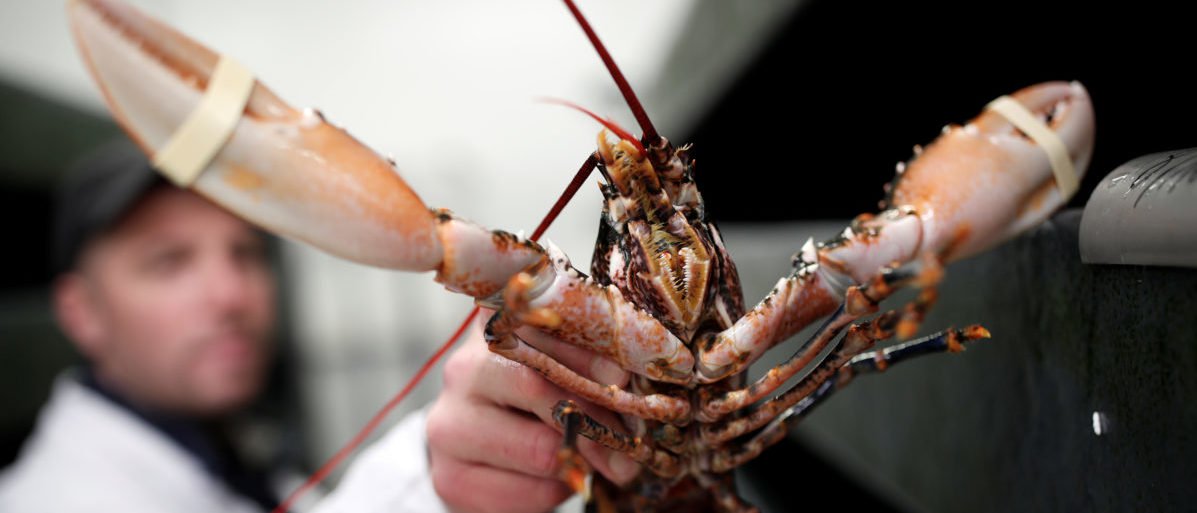By Collister Johnson February 2nd, 2023 @ CFACT

The Bureau of Ocean Energy Management (BOEM) is trying to extricate itself from a dilemma placed squarely in its lap by the Biden Administration.
The dilemma is how to pretend that it is doing everything it can to protect the critically endangered Right Whale, while at the same time green-lighting massive wind energy industrialization of the ocean waters off the East Coast.
These wind projects consist of over 3,000 giant wind turbines, coupled with more than 9,000 miles of underwater cables, covering 2.3 million acres – an area larger than the states of Rhode Island and Delaware combined. This is all mandated by President Biden’s Executive Order 14008, directing all federal agencies – from the Post Office to the Department of Defense – to expedite offshore wind energy development.
BOEM’s problem is that the two objectives of protecting the whale and implementing wind energy are fundamentally incompatible. The North Atlantic Right Whale is clinging to its continued existence by a thread. Fewer than 350 of them are still alive. Their feeding, mating, and migrating patterns lie directly in the path of the areas where BOEM has determined that these monstrous, industrial strength wind towers, each taller than the Washington Monument, should be erected.
Something has to give. The square peg of offshore wind industrialization cannot fit in the round hole of endangered species protection. And BOEM has decided that the something that has to give is…the lobster fishing industry!
Yes, lobster fishing. The Biden Administration has determined that a centuries old industry employing thousands of hardy, sole proprietors should be sacrificed in favor of a new industry consisting of foreign built, highly inefficient, very expensive, taxpayer subsidized, bird killing machines.
How imperiled is the Right Whale, exactly? NOAA Fisheries has the answer. It has declared that, for the species to survive, the Potential Biological Removal for the Right Whale (the number of human caused fatalities that can occur in any given year ) is less than one. In other words, for the species to survive, there can be zero human caused Right Whale fatalities: none.
So, in order to create an ocean environment where there are zero human caused fatalities, BOEM has enacted a suite of regulations that crush the lobster industry.
For example, it has passed a regulation for offshore zones covering the entire Atlantic coast ordaining that any vessel above 35 feet in length cannot operate at speeds greater than 10 knots for the majority of the year. This new rule covers virtually the entire deep water lobster fishing fleet, most of whose ships exceed 35’ in length. Lobstermen cannot harvest lobsters economically while creeping around to and from their deep-water fishing grounds. The rule is as if the Department of Transportation declared that commercial trucks cannot operate at speeds greater than 20 mph on interstate highways.
Then there are the “entanglement” rules. On rare occasions, Right Whales become entangled in lobster trap lines. This is often fatal for the whale. So, to make sure that the mortality rate is zero, NOAA issued regulations requiring the lobster industry to retrofit its lobster trap gear to be “releasable,” meaning that if a whale becomes entangled in lobster trap lines, special devices will release them from the lobster traps to which they are attached. This rule will certainly not save the whales, but it will definitely ensure that the lobstermen’s means of harvesting lobster – the traps – become abandoned on the ocean floor.
These regulations make earning a living as a lobsterman very difficult, if not impossible. The Lobstermen’s Association has sued BOEM for relief, but the judge in the case ruled in favor of the government, based on that the specific language in the Endangered Species Act and Marine Mammal Protection Act which directs BOEM to “ensure” that the Right Whale species is protected.
But what about the offshore wind program, which has a far greater capacity for Right Whale endangerment than the lobster industry? Will it get a pass from the Biden Administration?
It sure seems that way. BOEM is marching forward with the issuance of Draft Environmental Impact Statements for both the Virginia and New York offshore wind projects. BOEM maintains that “climate change poses a significant global threat” and the solution – somehow – is to forge ahead with the construction of offshore wind factories.
Something has to be sacrificed on the altar of “climate change,” and hardworking lobstermen are the victims, collateral damage in the mindless appeasement of the wind industry and its allies.
Never mind that offshore wind projects will do nothing to improve or impact the climate. The wind energy industry, with massive amounts of money and Biden Administration gifted tax credits, thinks it can win this battle by buying off many of the major environmental groups and appeasing both wealthy suburban liberals and well-meaning but clueless urban millennials – two core constituencies of the Democratic Party.
And if destroying a centuries old industry maintained by lobstermen and their families is the price that has to be paid – well, too bad for them. They are small potatoes, mere nobodies standing in the way of a wind energy fantasy that will help Democrats maintain political power.
The lobstermen’s only salvation will be regime change at the presidential level in 2024. They deserve as much.
Author
No comments:
Post a Comment